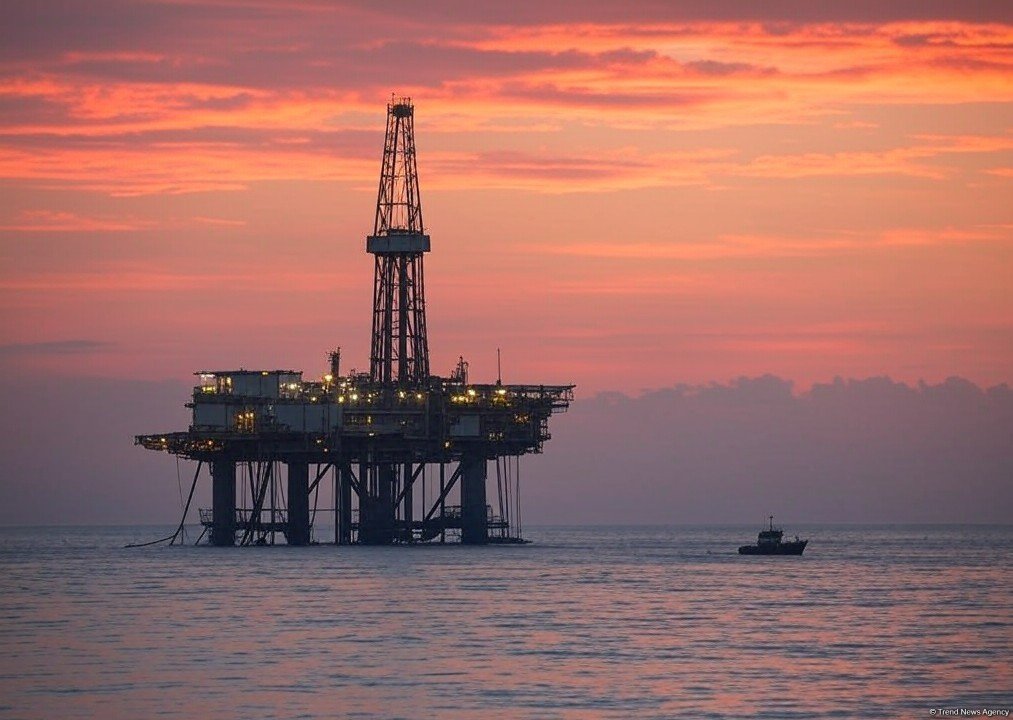BAKU, Azerbaijan, June 13. Real threat of oil shortages doesn’t exist in the coming weeks, Cyril Widdershoven, Senior Fellow at Strategy International, told Trend.
He noted that the immediate risks are clear: “If Israel will attack hydrocarbon projects or especially the Kharg Island facilities, Iranian oil and gas exports will be constrained or even destroyed.”
"This however has not happened, so the only real risks at present is the insecurity or instability of the region, which will not be taken lightly by shippers and traders. Prices will be up, but this is mainly built on emotions and possible doomsday scenarios. Fundamentals at present are strong in the market, so a real threat of shortages don’t exist in the coming weeks. The latter however could be totally different if Iran steps up the confrontation, in which Israel will for sure target oil, gas, shipping and other energy related sectors," he said.
Widdershoven also warned of broader regional implications.
"For Iran, a possible outcome would be targeting Western military basis in the Arab world, as the US is perceived to be behind the attacks too (not confirmed, don’t even think so). If Tehran attacks US forces or navy, the story will become much bigger, with Saudi-UAE-Bahrain facilities at risks, while even Qatar LNG will be blocked. Iran's influence is still visible also in Iraq, so oil-gas up there is at risk, which would bring global supply down too," he noted.
He emphasized that despite threats, Iran has not taken extreme action yet.
"At present not yet, Iran has threatened it, but keep in mind, it is the only real lifeline of its economy. One analyst even stated the Strait of Hormuz is the lung of Iran, if closed it suffocates. However, Red Sea - Horn of Africa - Bab El Mandab or elsewhere is not impossible, Iranian proxies or IRGC clients will be capable and willing to," the expert added.
Widdershoven also outlined the wider potential impact of a disruption in the Strait of Hormuz.
"If, however, the Strait of Hormuz is closed, a major flow of OPEC oil, high crude quality, very much needed in Western and Asian refineries, thanks to the sanctions on Russia and Venezuela, would be offline. This includes main flows from Saudi Arabia, UAE, Iraq, Kuwait and even Qatar. Oman is not affected, and parts of existing flows in Saudi or UAE can be redirected, but not all," he said.
On strategic preparedness, he remarked: "They should be, as the IEA (OECD energy watchdog) controls strategic crude oil and petroleum products storage in all member countries. This should be enough for around 160 days of total demand. For Asia, China holds vast storage volumes, India is another question, not yet capable to counter all. Luckily, between brackets, OPEC Arab oil and Iranian flows are not as powerful in total anymore."
On the morning of June 13, Israel launched airstrikes on Iran. The attacks killed numerous high-ranking military officials, including Mohammad Hossein Bagheri, Chief of the General Staff of the Armed Forces. Also killed were several members of the Islamic Revolutionary Guard Corps (IRGC), such as IRGC Commander-in-Chief Hossein Salami, Khatam al-Anbiya Headquarters Commander Gholamali Rashid, six nuclear scientists, and others.







